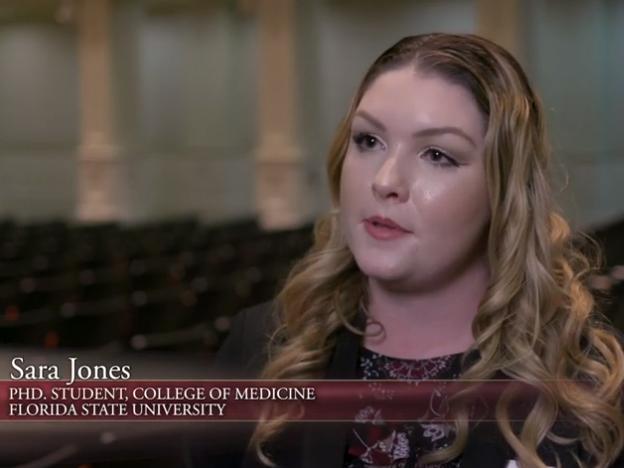CONTACT: Bill Wellock, University Communications
(850) 645-1504; wwellock@fsu.edu
@FSUResearch
November 2019
TALLAHASSEE, Fla. — Research from Florida State University is giving physicians a better understanding of ketamine, a potentially useful tool in treating depression that still has unanswered questions.
A team of researchers working in the laboratory of Mohamed Kabbaj, a professor of Biomedical Sciences and Neuroscience in the College of Medicine, showed that ketamine can decrease alcohol consumption in male rats that previously had consumed high amounts of alcohol when given unrestricted access several times a week. The neuroscience journal eNeuro published the research in its November edition.
There are no perfect treatments for alcoholism, Kabbaj said. Many patients relapse within a year after treatment.
“What makes ketamine interesting in our study is that it reduced alcohol intake, and the effect was long-lasting even after we stopped ketamine treatment,” he said.
Ketamine is a promising frontier in psychiatric treatment. Existing antidepressants don’t work for all patients, so scientists are looking for other effective options. Ketamine is one possibility. In March 2019, the U.S. Food and Drug Administration approved a nasal spray that includes a form of ketamine for use on patients with depression who didn’t respond to other treatments.
But doctors still have questions about how ketamine works. This latest research is one piece of a larger investigation by Kabbaj’s team to learn more about the drug, specifically its interactions with alcohol, the number one drug abused by depressed patients.
In this study, researchers examined how ketamine affected the rats’ alcohol consumption and how that alcohol intake affected their self-administration of ketamine.
The major finding in the study was that high-alcohol intake male rats displayed a significant reduction in alcohol consumption after a regimen of ketamine compared to rats that received a saline solution. The effect lasted for at least three weeks even after stopping ketamine treatment, suggesting a long-term benefit of ketamine in reducing alcohol use.
“Three weeks is a long time in a rat’s life,” Kabbaj said. “If a similar thing happened in humans, one could imagine that after a short treatment with ketamine, alcoholic patients would cease alcohol intake for a couple of years. That would be a great achievement.”
Ketamine didn’t affect high-alcohol female rats, and interestingly, it increased drinking in low-alcohol females. Researchers said clinical studies for men and for women are needed before ketamine is used as a therapy for alcoholism in either sex.
The National Institute of Mental Health and the National Institute on Drug Abuse provided funding for this study.
###

